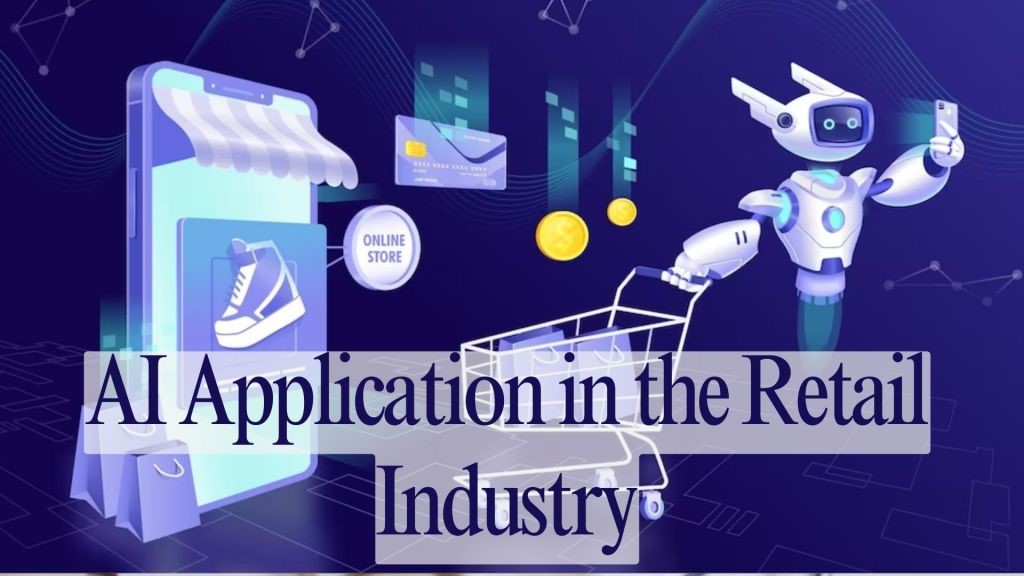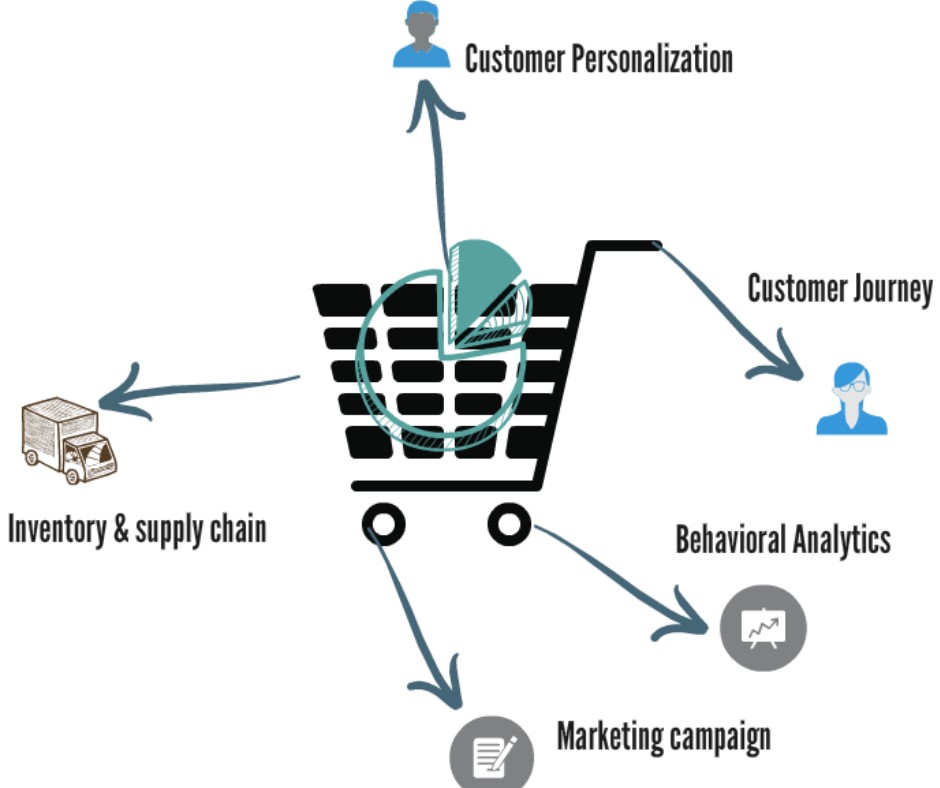Introduction:
When a computer makes a program think and act like a human, known as Artificial Intelligence. In the upcoming future Artificial Intelligence (AI) will be having a significant impact on the Retail Industry, transforming various aspects of operations, customer experiences, and decision-making processes. The future of the shopping in terms of the product category will be in the next level with the help of AI. New technology will make shopping more immersive. The prime reason of shifting towards AI is to meet the need of the customer expectations for personalized, seamless, and overwhelmed experience. This blog will explain the benefits of AI application in retail industry to enhance customer shopping experience.

Here are some key AI Applications in the Retail Industry:
Supply Chain Optimization: AI is used to optimize supply chain operations by predicting delivery times, managing logistics, and minimizing transportation costs. Predictive analytics can also help retailers identify potential disruptions and take proactive measures. All these machine-learning algorithm will help in making decisions about product management warehouse, inventory, and global trade management.

Customer Segmentation: AI can segment customers based on various attributes, enabling retailers to target specific demographics with tailored marketing campaigns and promotions.
Predictive Analytics: AI-powered predictive analytics models forecast future sales trends, allowing retailers to make data-driven decisions about merchandising, promotions, and marketing strategies.
Customer Insights: AI tools analyze customer data to provide retailers with deeper insights into shopping behaviors, preferences, and trends, helping them make informed business decisions.

Recommendation for Assortment Planning: AI can assist in selecting the right mix of products for stores, considering local preferences, demographics, and historical sales data. This ensures that stores carry items that are likely to sell well.
Personalized Shopping Recommendations: AI-powered recommendation engines analyze customer data, including purchase history and browsing behavior, to provide personalized product recommendations. This enhances the customer shopping experience and increases the likelihood of cross-selling and upselling.
Chatbots and Virtual Assistants: AI-driven chatbots and virtual assistants provide 24/7 customer support, answer product-related questions, assist with order tracking, and even handle returns and refunds, improving customer service and reducing operational costs of the different product category.

Visual Search: Visual search methods always allows customers to search for products using images. AI algorithms analyze every image to identify and match products, making it easier for customers to find the exact or similar items they’re interested in.
Customer Sentiment Analysis: Retailers use natural language processing (NLP) and sentiment analysis to understand customer feedback, reviews, and social media conversations. This helps in gauging customer sentiment and making improvements accordingly.
Virtual Try-On and Augmented Reality: AI-driven virtual try-on tools enable customers to visualize how products, such as clothing or cosmetics, will look on them before making a purchase. Augmented reality (AR) apps can enhance the in-store shopping experience by overlaying digital information on physical products.
Voice Commerce: Voice-activated shopping through virtual assistants like Amazon’s Alexa or Google Assistant enables customers to make purchases verbally, adding convenience to the shopping process.

These AI applications in the retail industry not only enhance operational efficiency and customer experiences but also enable retailers to stay competitive in a rapidly evolving market. AI continues to play a pivotal role in shaping the future of retail.